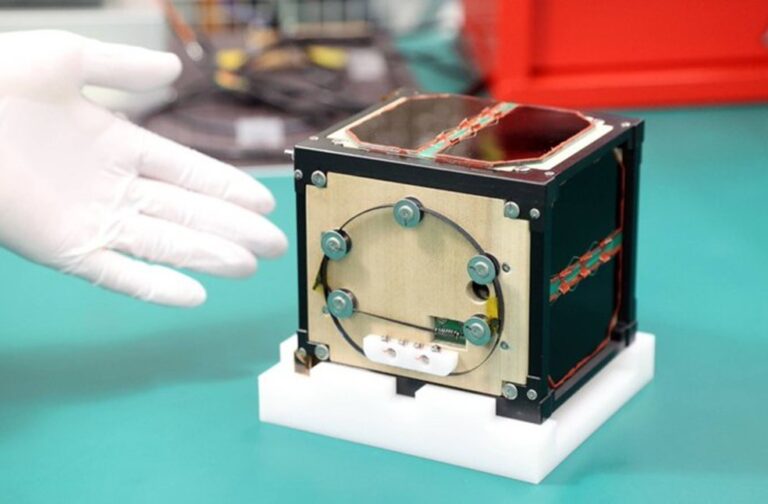Kyoto: Japanese researchers have successfully launched the world’s first wooden satellite, LignoSat, in a groundbreaking initiative aimed at exploring the potential of timber in lunar and Martian exploration.
The satellite was sent into space as part of a SpaceX mission to the International Space Station, from where it will later be released into orbit approximately 400 kilometres (250 miles) above Earth.
Developed by Kyoto University in collaboration with Sumitomo Forestry, LignoSat is designed to test the viability of wood as a renewable material for future space habitats. The satellite, named after the Latin word for “wood,” measures just a palm-sized unit and aims to demonstrate the possibilities of using timber in human space exploration.
Scientists in Japan are set to test the world’s first wooden satellite, LignoSat, developed by a team from Kyoto University and homebuilder Sumitomo Forestry, and will be launched on Nov. 5 pic.twitter.com/h0bz7DxxRj
— Reuters (@Reuters) November 1, 2024
“With timber, a material we can produce by ourselves, we will be able to build houses and sustain life in space indefinitely,” stated Takao Doi, a seasoned astronaut and human space activity researcher at Kyoto University.
Doi team envisions a 50-year plan that includes planting trees and constructing timber houses on both the Moon and Mars. Developing a NASA-certified wooden satellite was a crucial step to validate wood as a space-grade material.
One significant advantage of LignoSat is its reduced environmental impact at the end of its life cycle. Conventional metal satellites must re-enter the atmosphere to avoid contributing to space debris, releasing aluminium oxide particles during re-entry.
In contrast, wooden satellites like LignoSat are expected to burn up cleanly, resulting in less pollution. Doi speculated that, “Metal satellites might be banned in the future. If we can prove our first wooden satellite works, we want to pitch it to Elon Musk’s SpaceX.”

In the quest to identify suitable materials for spacecraft, researchers discovered that honoki, a magnolia tree native to Japan and traditionally used for crafting sword sheaths, was best suited after a 10-month experiment aboard the International Space Station.
Once deployed, LignoSat will orbit Earth for six months, with its onboard electronic components tasked with measuring how wood withstands the extreme conditions of space, where temperatures can swing from -100 to 100 degrees Celsius every 45 minutes. Furthermore, LignoSat will assess wood’s effectiveness in mitigating the impact of space radiation on semiconductors, presenting potential applications for constructing data centres.



